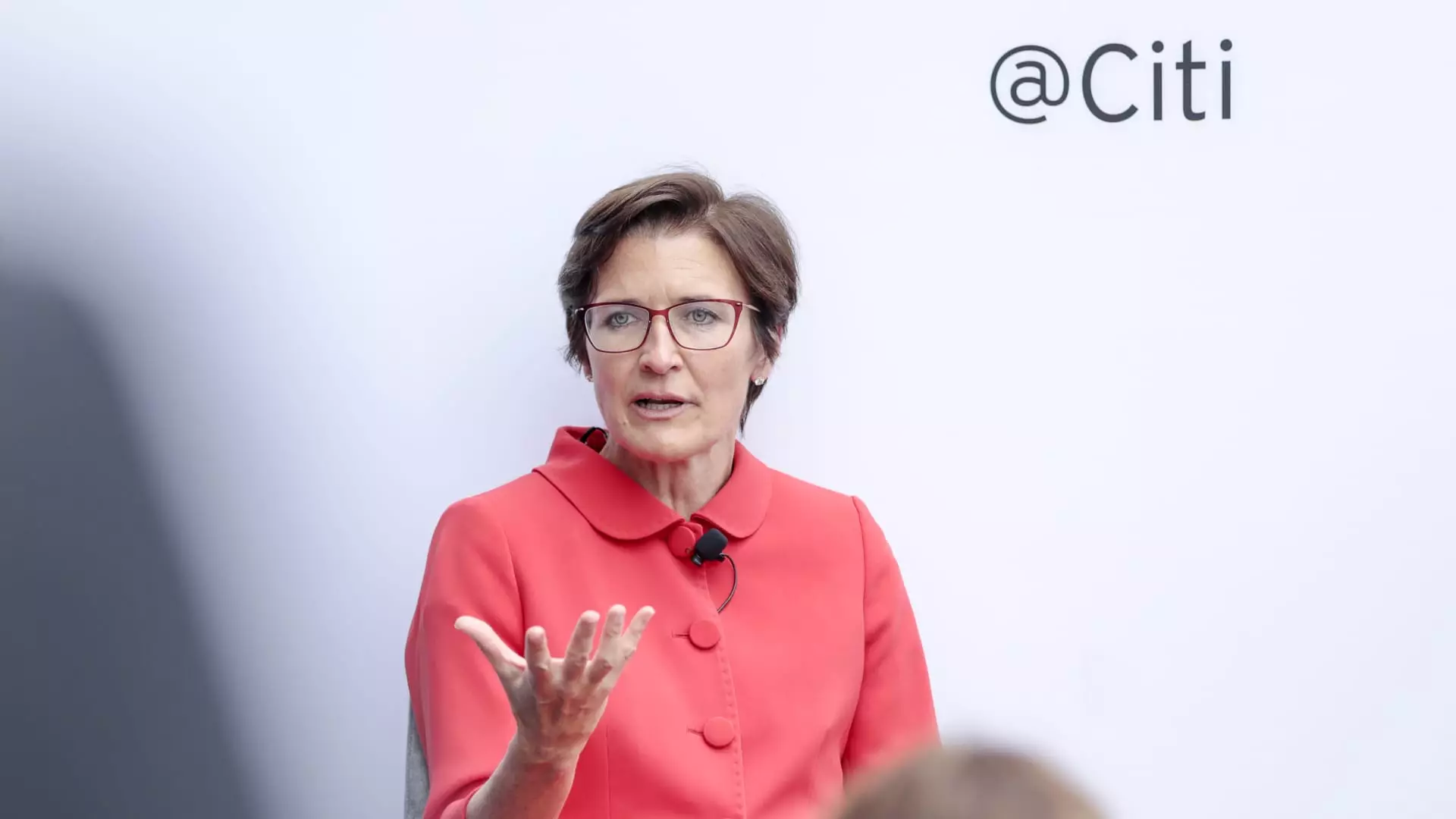In a highly anticipated financial report, Citigroup announced its fourth-quarter earnings on Wednesday morning, showcasing results that exceeded Wall Street expectations across both earnings and revenue metrics. The bank reported earnings of $1.34 per share, surpassing analysts’ predictions of $1.22, while revenue reached $19.58 billion, comfortably above the $19.49 billion forecast. Following this announcement, Citi’s shares reacted positively in premarket trading, gaining over 2%. This performance revitalizes investor confidence and reinforces the institution’s resilience despite past challenges.
One of the most remarkable aspects of Citi’s report is the significant net income turnaround. The bank reported net income of $2.86 billion for the fourth quarter, a stark contrast to the net loss of $1.84 billion reported in the previous year. Such a dramatic shift not only highlights the effectiveness of the bank’s strategic initiatives but also reflects the overall recovery and stabilization of the banking environment in which Citi has been operating. However, one must consider the potential implications of the charges the bank recorded in the latter part of 2023, which could obscure the true year-over-year comparisons.
Citi’s fourth-quarter performance was bolstered by notable successes across various business segments. The investment banking unit stood out, with revenue soaring by 35% year-over-year, contributing significantly to the overall banking revenue, which grew by 12%. When factoring in the influence of loan hedges, total banking revenue growth reached an impressive 27%. Additionally, the markets division experienced substantial gains, with a remarkable 36% increase in revenue driven by robust growth in both fixed income and equity markets. The fixed income segment generated $3.48 billion, exceeding analyst expectations, largely buoyed by the vibrant issuance of investment-grade corporate debt.
The wealth management and services divisions also showcased encouraging trends, with revenue increases of 20% and 15%, respectively, year-over-year. CEO Jane Fraser emphasized that the results reflect the fruition of a well-articulated strategy, which aims to enhance performance across various business lines. This strategy appears to be working as Citi approaches 2024, which Fraser highlighted as a crucial year for the bank. Her leadership, marked by efforts to streamline operations, including divesting from certain international units, indicates a commitment to focusing on core strengths and driving future growth.
As Citi prepares to engage with analysts and investors, questions surrounding the progress of Fraser’s turnaround strategy and its implications for the bank’s long-term prospects are inevitably anticipated. Investors are keen on insights into how Fraser plans to sustain momentum and address ongoing challenges. Notably, Citi’s stock has shown remarkable resilience, rising nearly 37% over the past year—the market’s favorable response suggests optimism around the bank’s commit to reform and improved performance metrics. Entering 2024, with more than 4% gains observed at the beginning of the year, Citi appears well-positioned to capitalize on its strategic successes and navigate the evolving financial landscape.

